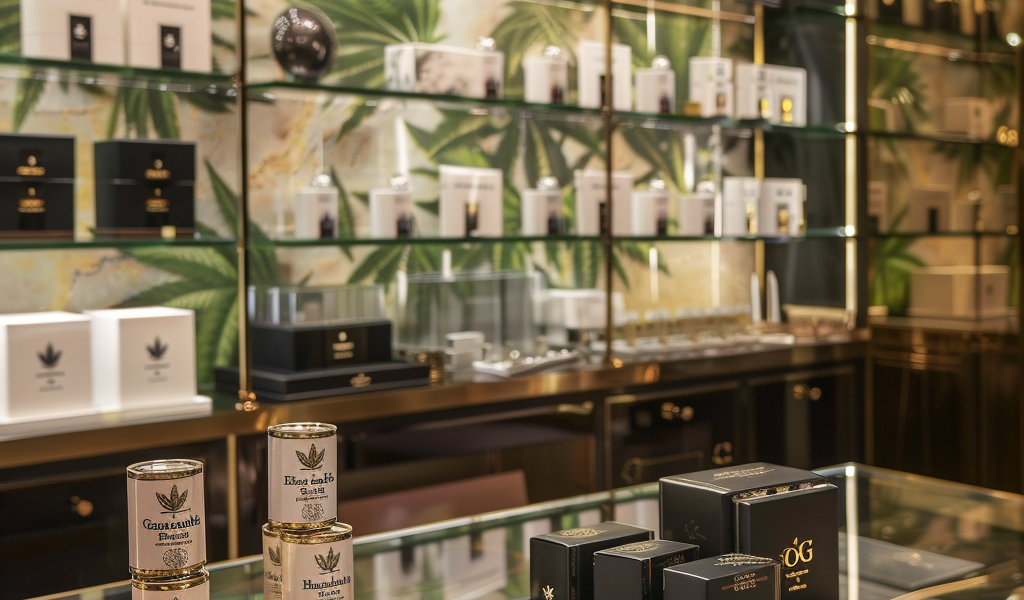In the ever-evolving landscape of the cannabis industry, few stories are as compelling as that of Jay-Z’s cannabis brand, Monogram. Launched in 2020 with much fanfare and media attention, Monogram aimed to position itself as a luxury cannabis brand. However, just four years later, the brand appears to be struggling significantly, raising questions about its future and the overall health of its parent company, The Parent Company (TPCO).
Monogram burst onto the scene with a high-profile launch that included $50 “OG Handrolls” and premium packaging, quickly capturing the interest of consumers and critics alike. The brand was celebrated in major publications like GQ, Vogue, and Vanity Fair, and Jay-Z, a cultural icon and business mogul, was heralded as a visionary in the cannabis space. However, the initial excitement has faded, and the brand’s presence has dwindled.
Currently, Monogram’s website lists only nine retailers, all located in California and Arizona. Alarmingly, none of these retailers feature Monogram products for sale online, indicating a significant disconnect between the brand’s luxury image and its market performance. The Parent Company, which entered the cannabis market with a staggering $575 million in cash, reported a massive loss of $587 million in 2022. This financial downturn can be attributed to several factors, including overvalued acquisitions, unmet sales projections, and intense competition in the cannabis sector.
The situation worsened when TPCO merged with Gold Flora Corp. in 2023, a move that saw TPCO retaining only a 49% stake in the newly formed entity. This merger followed a tumultuous period for TPCO, which had already separated from Monogram in late 2022, leaving Gold Flora with the distribution rights to the brand. Despite the merger, Gold Flora has not fared much better, facing over $56 million in losses and mounting debts. Reports suggest that the company is grappling with financial instability, having $63.5 million more in debt than assets, leading to speculation about its potential bankruptcy.
The lavish spending habits of The Parent Company during its brief tenure have drawn scrutiny from industry experts. Cannabis investor Seth Yakatan remarked on the “mind-boggling” amounts of money spent by TPCO, suggesting that the high price points of Monogram’s products did not resonate with consumers. A particularly scathing review from GQ criticized the $50 hand-rolls for their inability to stay lit, a fundamental flaw for any cannabis product, further tarnishing the brand’s reputation.
As Monogram’s struggles continue, the narrative surrounding Jay-Z’s venture into cannabis has shifted from one of potential success to a cautionary tale about the volatility of the cannabis market. While Jay-Z’s brand was once seen as a beacon of luxury and innovation, it now faces significant hurdles that could jeopardize its long-term viability.
The cannabis industry has been marked by rapid growth and equally swift downturns, and Monogram’s experience serves as a reminder of the challenges that even the most well-known brands can face. With competition becoming fiercer and consumer preferences shifting, the future of Monogram remains uncertain as it attempts to navigate these turbulent waters.
As the cannabis market continues to mature, the lessons learned from Monogram’s rise and fall may provide valuable insights for other brands looking to establish themselves in this dynamic industry. The story of Jay-Z’s cannabis brand illustrates the complexities of brand positioning, market expectations, and the harsh realities of the cannabis business landscape.
For now, observers will be watching closely to see if Monogram can recover from its current setbacks and find a way to reclaim its place in the competitive cannabis market.





